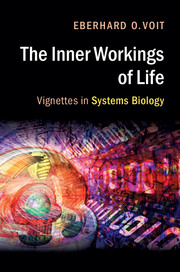Book contents
- Frontmatter
- Contents
- Appetizer
- Acknowledgments
- 1 Status: it's complicated!
- 2 I'd rather be fishin’
- 3 Whizzes and apparitions
- 4 Why?
- 5 Simply engenious!
- 6 Just a little bit
- 7 Supermodels
- 8 Close only counts in horseshoes and hand grenades
- 9 Emergence preparedness
- 10 Life without chaos?
- 11 What hath God wrought!
- 12 Tell me with whom you go and I'll tell you who you are
- 13 Time for a change!
- 14 Can't we all get along?
- 15 Love thyself and fight all others
- 16 A billion dollars for your thoughts!
- 17 The computer will see you now…
- 18 Redesigning perfect
- 19 Let's meet in the agorá!
- 20 Dessert
- Gentle jargon
- Selected further reading
- Index
9 - Emergence preparedness
Published online by Cambridge University Press: 05 May 2016
- Frontmatter
- Contents
- Appetizer
- Acknowledgments
- 1 Status: it's complicated!
- 2 I'd rather be fishin’
- 3 Whizzes and apparitions
- 4 Why?
- 5 Simply engenious!
- 6 Just a little bit
- 7 Supermodels
- 8 Close only counts in horseshoes and hand grenades
- 9 Emergence preparedness
- 10 Life without chaos?
- 11 What hath God wrought!
- 12 Tell me with whom you go and I'll tell you who you are
- 13 Time for a change!
- 14 Can't we all get along?
- 15 Love thyself and fight all others
- 16 A billion dollars for your thoughts!
- 17 The computer will see you now…
- 18 Redesigning perfect
- 19 Let's meet in the agorá!
- 20 Dessert
- Gentle jargon
- Selected further reading
- Index
Summary
Surprises are great for children's birthday parties, but we surely don't like to receive them from our machines. We would find it rather annoying if the remote control changed TV channels on its own, and we would certainly not want to fly in an airplane that surprised us by deciding to start its descent while high over the ocean. Surprises are events that we do not expect to happen. In the more somber language of science, a surprise is quite similar to the notion of an emergence or emerging behavior. Many definitions of emergence have been proposed, but the core concept is that we cannot explain an emergent property of a system by only studying its parts. One does not have to look far to find emergence. Wave patterns on a lake are difficult to explain in terms of individual water molecules. Table salt enhances the taste of many foods in a pleasing manner, but we would not want to taste its constituents, sodium and chlorine. The parts of a clock by themselves do not tell time. Aristotle already wrote in his book Sophistical Refutations about this “fallacy of division” and the corresponding “fallacy of composition,” which debunks the faulty inference that everything that is true for a part is also true for the whole, and vice versa.
Emergence has had a prominent role for a long time, both in biology and in philosophy. This prominence is not surprising, because no emergence is more stunning than life itself. About 99 percent of the mass of our bodies consists of hydrogen, oxygen, nitrogen, carbon, sulfur, and phosphorus, and roughly 99 percent of all molecules in a typical living cell are water. Yet, if we would buy water and other chemicals, we would still be eons away from a human body. What exactly constitutes the difference between a functioning cell and its components? What is different just before and after the death of a cell or organism? Is emergence the secret of life? The difference between life and its nonliving parts poses a fundamental, unanswered question that has been keeping philosophers and biologists wondering and pondering for a very long time. Similar persistent puzzles can be found throughout nature, from insect colonies to the relationships between thought, memory, and consciousness and their biological foundation.
- Type
- Chapter
- Information
- The Inner Workings of LifeVignettes in Systems Biology, pp. 68 - 74Publisher: Cambridge University PressPrint publication year: 2016



